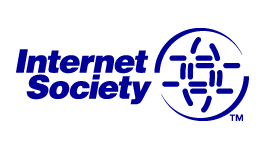Facebook, Google And Yahoo Join Giant IPv6 Test

The world’s biggest websites will test the new IPv6 protocol before IPv4 addresses run out
Tech giants Facebook, Google and Yahoo have all agreed to take part in ‘World IPv6 Day‘ on 8 June 2011, when they will enable IPv6 on their main services for a 24-hour “test flight”.
They join content delivery networks Akamai and Limelight Networks, as well as the Internet Society, in an attempt to motivate organisations across the industry to prepare their services for the imminent transition to version 6 of the Internet Protocol (IPv6).
A pivotal year for IPv6
 “2011 is a pivotal year in IPv6 deployment and this global IPv6 trial will prove to be an important milestone,” said Leslie Daigle, the Internet Society’s chief Internet technology officer. “By providing an opportunity for the Internet industry to collaborate to test IPv6 readiness we expect to lay the groundwork for large-scale IPv6 adoption and help make it ready for prime time.”
“2011 is a pivotal year in IPv6 deployment and this global IPv6 trial will prove to be an important milestone,” said Leslie Daigle, the Internet Society’s chief Internet technology officer. “By providing an opportunity for the Internet industry to collaborate to test IPv6 readiness we expect to lay the groundwork for large-scale IPv6 adoption and help make it ready for prime time.”
IP addresses are unique online identifiers which allow computers to communicate with each other around the world. The Internet is built around version four of the IP addressing scheme (IPv4) which can accommodate around four billion addresses.
When the web was first set up, four billion seemed like more than enough, but the growth of the Internet – in particular the current surge in demand for mobile Internet – means that IP addresses are being used up faster than ever.
IPv6 uses 128 bits of address data, giving it much greater capacity to accommodate the growth of the Internet than IPv4 addresses, which contain only 32 bits. It has been calculated that there is capacity for 340 trillion trillion trillion IPv6 addresses worldwide.
It is estimated that the last IPv4 addresses will be allocated in January 2012. At the end of last year, the Internet Assigned Numbers Authority (IANA) allocated four more blocks of IPv4 addresses to regional Internet registries, reducing the pool of free blocks to seven. Five of those seven free blocks are already reserved for the final stage of IPv4 deployment, leaving just two blocks unaccounted for.
However, despite the growing pressure on organisations to adopt IPv6, there is still a substantial amount of resistance within the industry. David Hendon, from the Department for Business, Innovation and Skills (BIS), compared the IPv6 transition to “changing the engine on a racing car when it’s going full speed around the track”; and Vint Cerf, one of the ‘founding fathers’ of the World Wide Web, has called for cash incentives to encourage ISPs and businesses in the UK to make the move.
Setting an example
The Internet Society hopes that World IPv6 Day will help organisations overcome their concerns, and accelerate the momentum of IPv6 deployment – and is happy for more companies to join in. “The greater the scope of the test flight, the more effective it will be for all participants so we wholeheartedly welcome additional participants,” said Daigle.
One of the main goals of the IPv6 test flight is to expose potential problems under controlled conditions and address them as soon as possible. While the trial may cause problems in networks that are not yet ready, issues are likely to impact less than 0.05 percent of Internet users, according to the Internet Society.
“Participating in the IPv6 Test Flight will allow us to obtain real-life data that we can use to ensure a seamless user experience as we transition to IPv6,” said Adam Bechtel, vice president for Yahoo’s Infrastructure Group.